
The Jacksonville Daily Record invited the eight Jacksonville mayor candidates running in the March 21 election for their positions on tax, business and economic issues facing the city. Candidates were provided the list of questions via email and asked to answer each in 60 words or less. Mayoral candidate and JAX Chamber President and CEO Daniel Davis and his campaign team did not respond to the invitation or to several follow-up attempts via email, phone and text messages to respond to the questions.
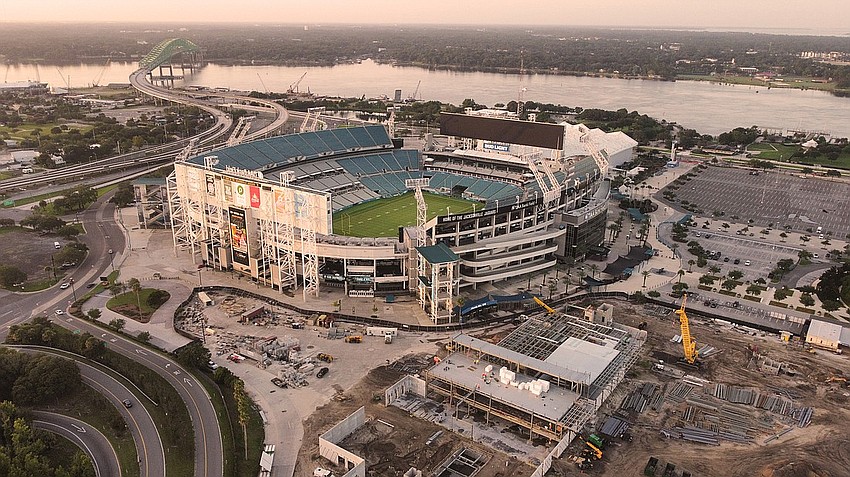
The current administration has begun planning stadium renovations with the Jacksonville Jaguars. Recent NFL stadiums have cost more than $1 billion. As mayor, what will be your position on the stadium renovation, city funding and any potential contributions by the Jaguars?
Omega Allen: Most plans and agreements initiated by the current administration must be reviewed and evaluated for efficacy, efficiency, and profitability for the people of Jacksonville. As Mayor, I will review the proposals and disseminate the findings to the people. Then, I’ll let the data, ROI, and informed citizens dictate our move and degree of commitment as a community.
LeAnna Cumber: The Jaguars organization needs to commit to staying in Jacksonville for the long term. I will ensure we get the best deal for taxpayers by having the very best negotiators and lawyers, who are experienced in negotiating with NFL teams. The Jaguars will obviously also need to be a major financial contributor to any stadium renovations.
Donna Deegan: The Jaguars have been a unifying force in our can-do city, bringing together people of diverse backgrounds. I hope to secure a long-term lease for the stadium under city control, negotiating with a careful eye on taxpayer funds. While supporting the team’s request for a renovated stadium, I will prioritize worthwhile returns on investment and address additional pressing community needs.
Al Ferraro: I’m open to investment in our stadium but I need more information about what that would entail and what the return on that investment would be. My first obligation is to the taxpayers, not the Jaguars. I cannot justify spending a single dollar of taxpayer money without assurance that it will produce a better life for our current residents.
Audrey Gibson: Any investment of city funds must include short term and long-term return on investment and a long-term contract for the team to remain in Jacksonville well beyond 2029. This would also include no diminishment in “home” games being played locally. Community investment is important as well. We have taxpayers who can’t even afford to go to a game.
Brian Griffin: We have a modern stadium. There is no reason to replace everything, spend to spend. I support fixing & replacing things that need fixing. Common sense, fiscal conservatism. If the team cost $770 million, considering $1 billion, makes me think the city (residents) should have more ownership. What other private business gets these benefits?
Frank Keasler: As Mayor, I will propose we change the way we “hand out the people’s money.” No incentive will be granted absent disclosure of the applicant’s business plan and ownership of the project. Such “deal due diligence” will show our “piece of the pie” is the key capital to get the “numbers” to work.

The city has spent millions on incentives for businesses to relocate or expand in Jacksonville. What would be your policy on incentives?
Allen: Incentives must have guidelines, stipulations, and clawbacks that demand repayment if the terms of the incentive are not met. The incentives must be tied to employment creation. Additionally, the incentive should also help to rectify issues in Jacksonville through a 5% contribution to specified initiatives i.e., homeless solution. As Chair of the NW Jax Trust Fund, I found clawbacks effective.
Cumber: The incentive process needs to change so it achieves its intended outcome but does not result in windfalls to developers who do not ultimately complete projects or are constructing projects that are already financially viable. If we offer incentives, it is imperative that we protect taxpayers, something we have not done over the last eight years.
Deegan: I believe we’re better served by creating the kind of city businesses would like to relocate or expand into. In multiple studies over the past decade, businesses are looking much more for quality of life issues, like public safety, infrastructure, education, housing and enjoyment of life. Being the best city in the southeast would be the best incentive of all.
Ferraro: We’ve become too willing to transfer money from taxpayers to entities who wish to take advantage of the resources our city has to offer. My administration will spur growth without always utilizing these corporate handouts. There is no greater incentive than creating a safe and vibrant city. We’ll focus on our roads and our infrastructure and pay our first responders.
Gibson: As Mayor I will lean on my experience of seeing failed performance. Incentive policies should be reviewed for relativity to expected outcome, include claw-back provisions for non-performance. Companies deciding on their own to relocate without incentives don’t need an offer. Job creation must include 40-50% current Jax resident hires, review of workforce compatibility, company training opportunities to ensure sustainability.
Griffin: In some circumstances, depending on how it benefits the city, I am for incentives. My platform is intended to make resident’s lives better, which will also make Jacksonville desirable to new business, without having to incentivize. Crime, storm resilience/readiness, public schools, affordable housing & traffic congestion. Refer to my platform for real solutions.
Keasler: Please see our answer to (stadium renovations) above as the same investment philosophy and criteria as described in how we will approach an investment in TIAA Bank Field, will apply to any and all investments we make as a city incentivizing economic, business and real estate development.
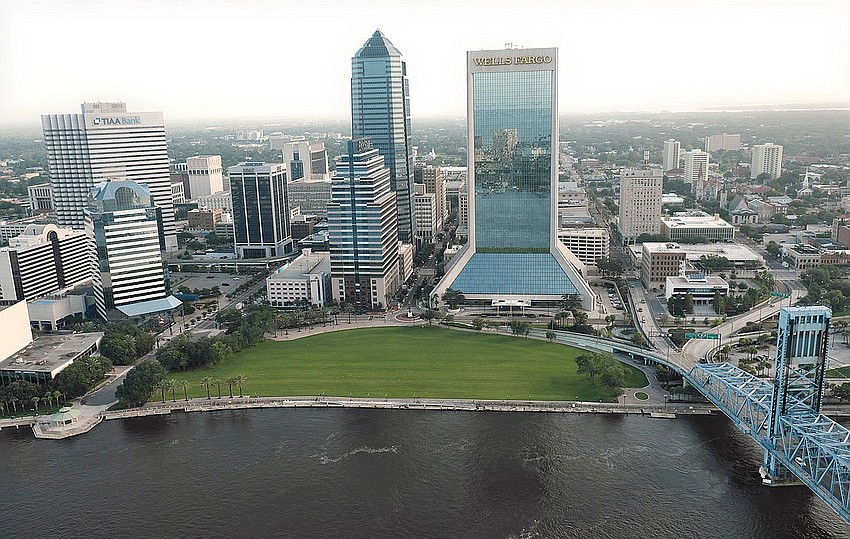
Downtown development, including financial incentives, has been a priority for past administrations. What will your strategy be for Downtown and should the city continue those incentive policies?
Allen: A viable downtown requires four elements: Residential, Retail, Entertainment, and Reliable Transportation. I will identify and pursue merchants, and vendors that will establish a presence and supply diverse shopping, entertainment, residential, and transportation experiences for the citizens of Jacksonville reminiscent of (and better than) the bustling downtown I knew in my youth.
Cumber: We will recruit and retain businesses by being the best school choice and parental empowerment city in the state, encouraging trade schools and addressing our homeless population. We will make downtown the easiest place to develop businesses rather than the hardest. Financial incentives should be a last resort and ensure a high return for taxpayers not just an equal return.
Deegan: To stimulate growth in the downtown area, the Deegan administration will prioritize infill development and the success of small businesses. We will improve the wireless and LiFi infrastructure to keep pace with the new economy and support the riverfront parks program. Furthermore, we will work toward removing any unnecessary obstacles that discourage the public from returning to the downtown area.
Ferraro: I’ll work to make our downtown safer and address the homelessness epidemic which has reached crisis levels. A safer downtown will spur a growing downtown. While I’ll continue to care for our downtown, we will not do so at the expense of the rest of our community. We need to focus on all of our city, not just our downtown.
Gibson: As a Riverfront 2025 attendee, I would modernize the James Weldon Johnson Park to make it a focal point for “middle” Downtown. I will add a hop-on-hop-off trolley, expand railways, add cultural venues along with high-end shopping. Incentives should not be automatic; should be examined by ROI; benefit the local community; and, compatible with an overall downtown plan, including sustainability.
Griffin: I would leave the incentives as they are for now. With all the planned development, I think we should see how the new construction affects downtown, before adding too much more. While those projects get built, we can focus on the rest of the city.
Keasler: A Revitalization Plan downtown from the Fuller Warren to the Matthews Bridge, all the way north between Pearl and MLK and down Main Street to the Trout River is needed. Before EOY a Phase 1 of Revitalization Going North will be presented. Time we looked to where the ”hardscape screams for life” instead of bulldozing “greenscape full of life.”
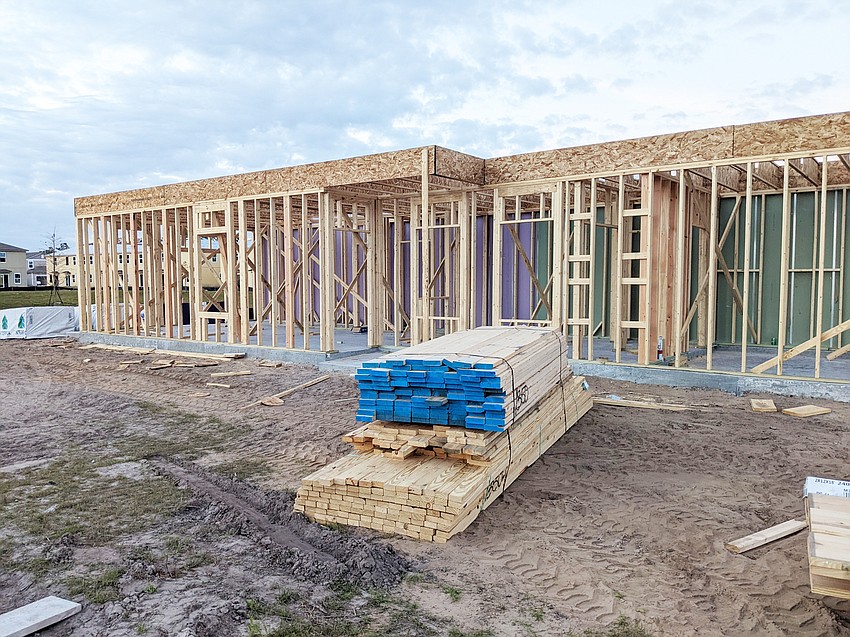
Many business leaders have raised the issue of a shortage of affordable housing in Jacksonville. What do you feel the city should do to satisfy the housing needs of a growing population?
Allen: Forging relationships between the rental facilities representatives, residents, local developers, and my administration to work out an EQUITABLE solution is first. No “ONE” entity has all of the answers but together we can and MUST come to a workable and affordable solution. There are many options available but WE need to consider both commercial and residential players in the process.
Cumber: We must make structural changes to zoning ordinances, such as reforming antiquated parking requirements, streamline permitting to reduce housing costs and to encourage urban core infill. There is an affordability problem - from housing to basic communities. We need to focus on attracting more high-wage jobs and improving our education system so families can afford to raise their kids in Jacksonville.
Deegan: To tackle this issue, we must implement higher density zoning in areas with established infrastructure and access federal assistance and grants. Streamlining our permitting process is also crucial. These solutions have been effectively employed in other cities. My administration will repurpose city-owned properties, integrate workforce housing, update zoning regulations, encourage local ownership, and secure funding for affordable housing programs.
Ferraro: We can’t, on one hand, raise the millage rate which adds to the cost of owning a home while then complaining about the cost of a home. Millage rates are a burden on homeownership. Those rates are passed down to renters as well. My administration would work to keep all our taxes low so that residents can afford their homes.
Gibson: Infill in older neighborhoods could alleviate affordable housing issues, reestablishing communities, creating economic development. Inventory of abandoned property determining ownership; possibility of the city acquiring properties to auction several properties for builder purchase. Tax relief with parameters on rental costs. Without intervention investors will continue to buy up vacant properties with no control measures.
Griffin: I would invite prefab home builders, around the country, to expos. Let residents see availability, possibly make home ownership easier. We should have some developer incentives, but we should require all new development to include a specific % of affordable housing. There’s more low paying jobs than high paying jobs, unless we get rid of fast food & convenience stores.
Keasler: Our M.A.R.s (Making Affordable Residences) Program represents a novel “JV” concept with private development. Under MARs program we create “Life Forward Residences.” Any further government assistance program will not function to create generational dependency on public assistance. The key is MARs is a place you visit you must return to Earth (reality) within 5 years.

As Downtown redevelops, the issue of the city’s homeless population there has increased. What will your strategy be for providing and funding homelessness services along with providing a positive economic and business climate?
Allen: My strategy is to utilize decommissioned schools near downtown to establish as transitional housing with a permanent feel, supplying mental health counseling and re employment assistance. Employ residents to manage certain aspects of the facilities. Utilize incentive rebates to fund sustainable permanent housing.
Cumber: Addressing homelessness starts with enforcement of existing laws and identifying the systematic reasons why people are homeless. We should work to address the root cause of homelessness rather than providing bandaids. More funding is not always the solution. Providing workforce training is even more important.
Deegan: Homelessness is a complex issue that requires long-term solutions and funding. Although private funding is often used to support services for the homeless, the City does allocate funds for programs that aim to end homelessness. This provides an opportunity for Jacksonville to influence and direct funding towards successful initiatives, such as the Ability Housing project that addresses veteran homelessness.
Ferraro: It’s neither kind nor humane to allow our citizens to live in such poor conditions. We have a responsibility to address the issues that are leading to the mass homelessness crisis. We need to empower mental health treatments facilities to reach out to those that are willing to get that help.
Gibson: Homelessness is a multi-faceted issue including the need for a continuum of care particularly from a mental health perspective as well as workforce development/opportunities. Since most of the city’s homeless services are downtown, it is difficult to displace the homeless away from their resources. As mayor, I would look at repurposing some buildings as transitional housing.
Griffin: We need to determine who is homeless by choice or hard times. Anybody fighting to get back on their feet & back to work should get a temporary, safe place to call home. I would like to try a tiny home neighborhood, to see if it would have a positive effect. A whole neighborhood could fit on a regular lot.
Keasler: Under our Campus for Sustained Independence (CSI) concept, we create Men’s (and Women’s) Residences for Restoration located on the CSI property. If we are going to tackle homelessness, leaving them on the streets is working in the wrong direction.
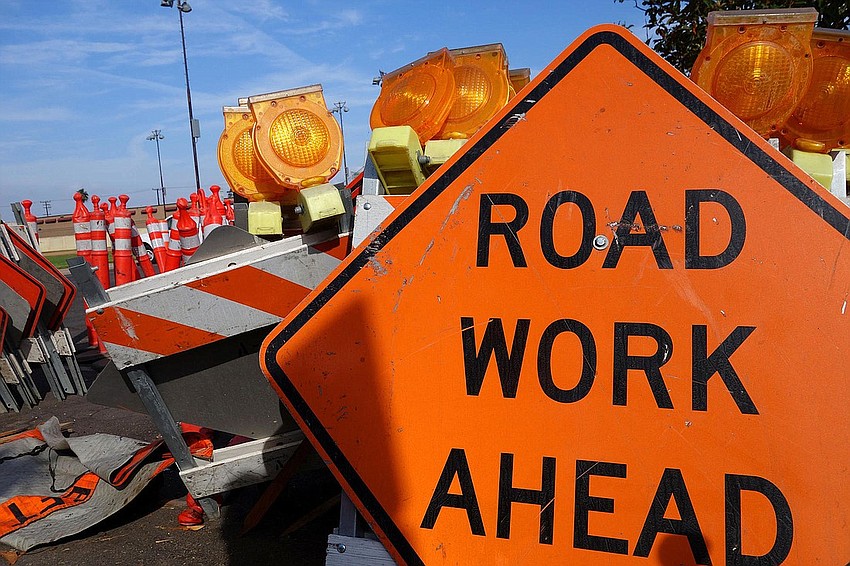
The city has billions in long-standing infrastructure needs that are yet to be funded. What do you feel is the city’s greatest infrastructure need and how should the city pay for it and other projects?
Allen: There are many infrastructure needs; the most delinquent issue is the failing septic tanks in North Jacksonville. First, use the revenue generated in the area as funding for area projects. In conjunction, I will identify and draw down all state and federal funds earmarked for infrastructure available to us. Most importantly, I will use the funds for the intended purpose.
Cumber: Jacksonville needs to invest in resilience projects, pedestrian facilities, street lights, repairing our roads, picking up trash on our streets, and creating safe bike lanes. That is my focus. We need to address basic infrastructure needs and end the Skyway to Nowhere to redirect funds to projects that enhance our quality of life.
Deegan: We must address Jacksonville’s deteriorating infrastructure, particularly in neglected neighborhoods, which has decayed for the past 50 years. I’ll work to fulfill our promise to reinvest in these areas with street lights, sidewalks, and septic tank removal. We also need to tackle the affordable housing crisis. My administration will pull down available federal and state grants to fund these projects.
Ferraro: Our first infrastructure priority should be to add resilience to our roads and bridges. There is no excuse for the potholes and poorly maintained status they are in. Additionally, we have multiple roadways that have been in “to be built” status for far too long.
Gibson: As Mayor, I will establish a robust grants section to ensure draw down of federal funds to address drainage needs, as federal infrastructure law includes funding for cities, including underserved/older communities. We cannot tax and spend our way out of a history of doing little to move the needle on major infrastructure fixes.
Griffin: Storm resilience & readiness. It affects everything else. We should see what we can get through the federal infrastructure bill & FEMA Pre-Disaster Mitigation grants. Start with the biggest problems & go up the list. I would audit everything I can, to find waste & then ask our residents if we can use that money.
Keasler: More asphalt, concrete and traffic signals is not the answer. Driving into the 21st Century under our Drive Right Program, is! With CLEAR Audit resources we will begin immediately to remediate the septic tanks, engineer a regional storm water capture system and give the people on Moncrief, Soutel and Cleveland, a hope decades overdue.
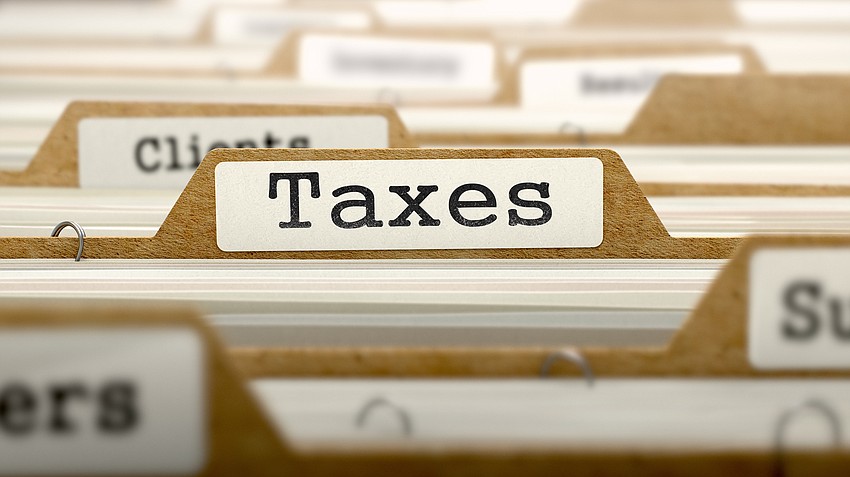
The city has used gas and sales tax increases, fees and debt to pay for projects and other budget obligations instead of increasing property tax. As mayor, what will your strategy be on taxation and fees to create revenue for increasing expenses or needed projects?
Allen: Gas and sales tax increase is not EQUITABLE. Merchandise and gas prices are systematically higher is low-income areas. Therefore, those with greatest needs contribute more. Through re-budgeting, I’ll assess the efficiency of our budget, reallocate unused and ineffectively used dollars to address the needs. I will use tax revenue where it is generated to address the issues in that area.
Cumber: My mayoral administration will reprioritize the budget to eliminate projects that only benefit donors and special interests. We will then determine the needs of the city while recruiting companies to expand our tax base. We can live within our means if we stop the wasteful spending like the $500 million Skyway to Nowhere.
Deegan: We don’t need to tax residents more than we currently are. I will explore every possible avenue before increasing the tax burden. Fortunately, the Federal Government is heavily investing in the exact projects that will likely be the most expensive during the next 8 years. I anticipate being able to fund many of the most necessary projects with federal support.
Ferraro: I don’t believe there is a need for a single new tax. We have plenty of money in our coffers to tend to our core functions like infrastructure and safety. Without tax raises, we will see our revenues increase because our city is growing. We need to do a better job of prioritizing our spending, not raise taxes.
Gibson: First, gas prices vary in different areas of Jacksonville, and as a result some in the city pay more into the pot. Secondly, continued electric vehicle growth, will reduce tax revenue. As mayor, I will focus on increasing tourism to create more tax revenue.
Griffin: I would like to see property taxes stop once a house is completely paid for. This would help many older residents, with limited or fixed incomes. If cigarettes can be taxed the way they are, because they are bad for you, the choices are limitless. Who would argue against a nickel on every bottle of liquor, to pay for streetlights?
Keasler: There will be no new taxes under the Keasler Administration. PERIOD. Ours is a fleecing of the public treasury, not an issue of being constrained to a widow’s mite! If we find 5% (only 5 percent) waste, antiquation, obsolescence, redundancy and fraud in our city-wide operations, that’s 350MM Dollars! It’s 87.5MM out of our +/-1.75BB Dollar discretionary budget.